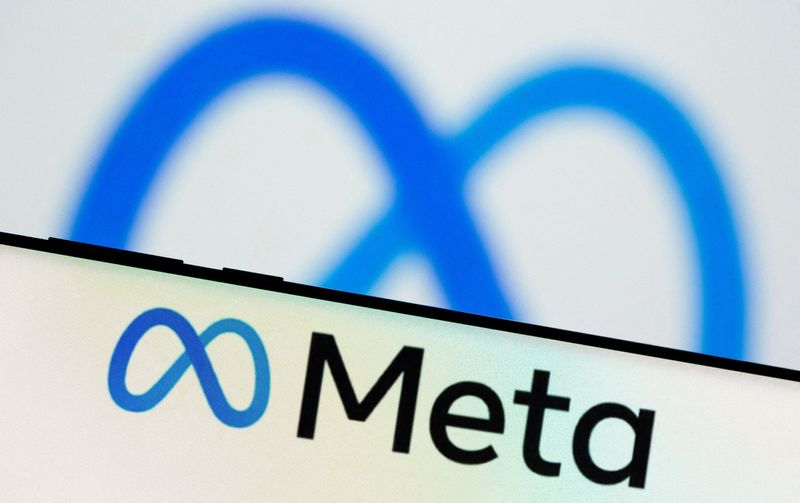(Reuters) -Meta Platforms Inc said on Thursday it would change the legal basis on how Facebook (NASDAQ:META) and Instagram use personal data to target advertising in the European Union, after the bloc's privacy regulator fined it for alleged breaches in January.
The move, Meta said, will give EU users more options around how their data is handled and is not expected to impact the company's lucrative targeted-advertising business in the region.
The social media giant was fined 390 million euros ($425.72 million) earlier this year by Ireland's Data Privacy Commissioner and told it cannot use the so-called "contract" legal basis to send users ads based on their online activity.
Meta, which had then said it intended to appeal both the substance of the rulings and the fines imposed, is now going to the use "Legitimate Interests" basis instead of "Contractual Necessity" to comply with the EU's General Data Protection Regulation (GDPR).
The contractual basis of the GDPR allows companies to collect data when the information is necessary to execute a contract, while "Legitimate Interests" allows companies to use personal data in a way that individuals can reasonably expect.
"We believe that our previous approach was compliant under GDPR, and our appeal on both the substance of the rulings and the fines continues," Meta said in a blog post.
The Wall Street Journal reported earlier on Thursday that Meta was planning to allow European users of Facebook and Instagram to opt out of certain highly personalized ads, and offer a version of its services that would only target them with ads based on broad categories.
Separately, the Financial Times reported that Meta was considering an all-out ban on political ads in Europe on concerns that Facebook and Instagram will be unable to comply with the new EU regulations targeting online campaigns.

Meta did not respond to Reuters requests for comment on potential changes to political ads.
($1 = 0.9161 euros)